May Your Doors Be Open
A spiritual story for the Days of Awe ✨
I hope everyone had a meaningful and delicious Rosh Hashanah!
I was going to skip this week, but I have a chag-related story I just had to share.
Last weekend, I was hanging out with some friends in the park. One of them, who was also stuck in Israel during the 12-Day War, looked like she was in a state of bliss as she was dancing to Hasidic music playing from someone’s phone speaker.
I wish I could have captured the moment forever: her long hair swaying behind her back as she tilted her head toward the sunny sky, smiling.
When I walked up to her, she exclaimed, “I’m so ready for the High Holidays!” She really looked it. I muttered, “Really? Can’t relate,” in a tone that sounded like how this emoji looks: 😒
You see, ever since I returned home from Israel, I’ve felt as if a part of myself has been missing—or rather, that I left a part of myself there. I’ve carried a heaviness I’ve been trying to lighten through prayer, purpose, even therapy. I’ve felt like the last panel in this award-winning graphic essay.
So it was hard for me to match my friend’s spiritual energy. Until she told me a story.
She began telling me how she she’d been feeling disconnected from everything after her trip to Israel. I instantly perked up, because she put into words something I had been feeling too.
“It was like my spiritual doors were closed. Literal ones, even: I tried visiting the Kotel for the first time and they weren’t letting anybody in because of the war,” my friend told me.
Not long after her return home, she attended a Jewish silent meditation retreat, where a teacher/spiritual guide told her to sit with her disconnectedness. It’s okay; the doors will open when they are ready.
A few weeks later, she happened to walk by 770, the famed Chabad World Headquarters in Brooklyn, and someone told her the Rebbe’s office was open to women that day (it normally isn’t); would she like to come inside? She entered, felt the spiritual energy of the room, picked up a book, and began to daven. Though she didn’t know much Hebrew, she recognized the prayer she opened to, a phrase from Hallel (Psalm 118:25):
ָנָּא ה’ הוֹשִׁיעָה נָּא, אָנָּא ה’ הַצְלִיחָה נָּא
Ana Adonai hoshi‘ah na, Ana Adonai hatzliḥah na
Please, Lord, save [us] now, Please, Lord, grant [us] success now.
This line is often said as an urgent plea. My friend felt comforted after having opened to this prayer, much like the time in Israel when I randomly opened a siddur and landed on the “Accepting the Sovereignty of Heaven” prayer.
Standing together in the park on that beautiful day, my friend told me, “Rosh Hashanah is when the gates of Heaven open up for us all. You’re doing okay, and your doors will open too,” like an assuring angel whispering in my ear.
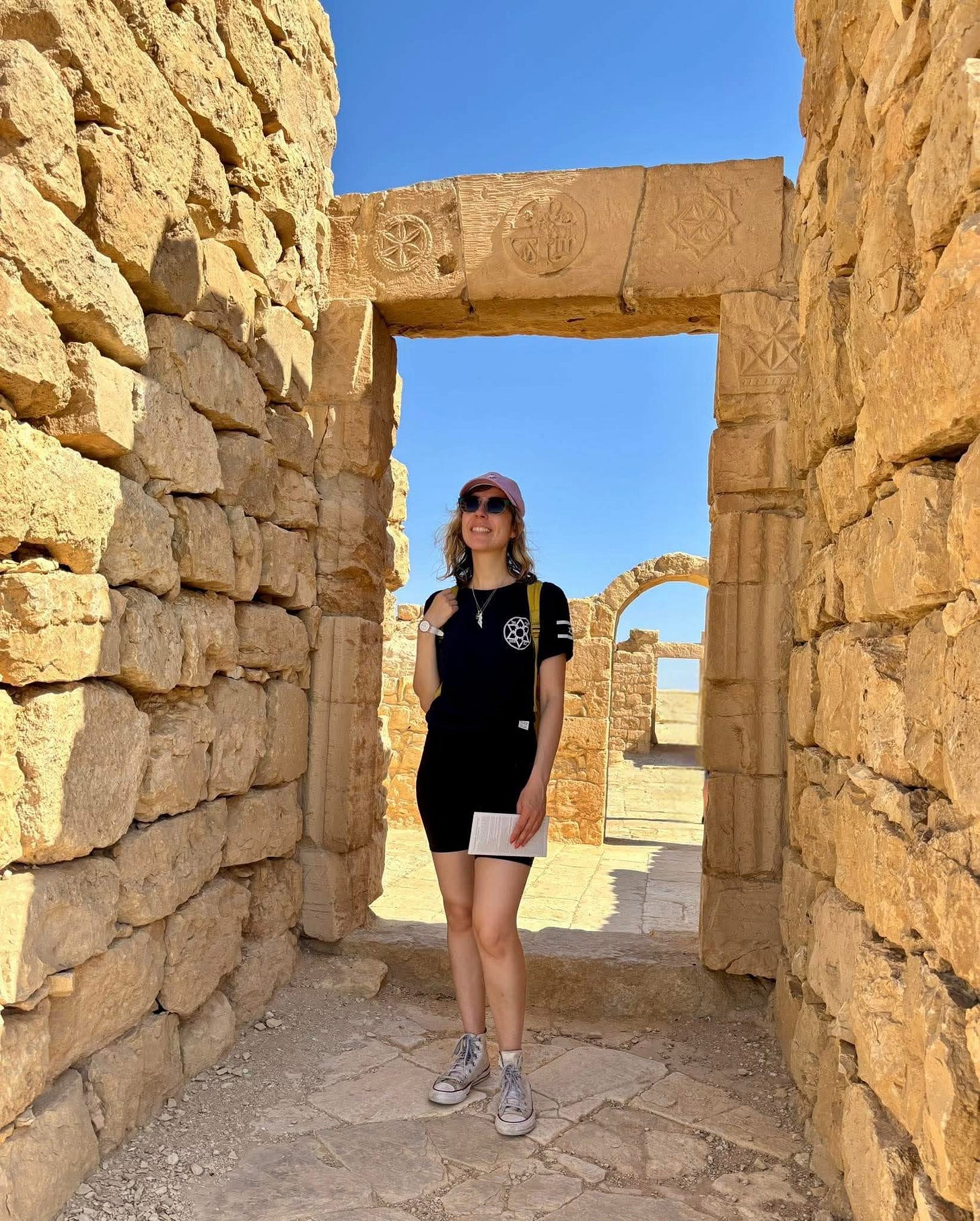
I asked what I can do to uplift myself spiritually during this time. She shared that she’s been praying more, specifically reciting Modeh Ani, the morning prayer of gratitude and something I’ve been saying every morning (not just on Shabbat morning like I used to). She’s also been saying prayers before bed, something I’ve actually been thinking of doing.
She then spoke on the importance of forgiveness, a theme during these Days of Awe. She said while it’s important to forgive, it’s also okay to think about what relationships no longer serve you, which is also something I’ve been thinking about (and something a lot of Jews have had to do in the past two years, unfortunately).
We hugged, and I walked away from that conversation feeling ready for the High Holidays. I’ve been marinating in that powerful conversation all week, thinking of how to realign myself, what to add and subtract from my life.
“Pay attention to who is around you and the people you come across on Rosh Hashanah, for this was the day people were created.” My friend also said these words to me, and since then, I’ve had weird synchronicity involving things/places in my life… and it’s only been a few days of 5786!
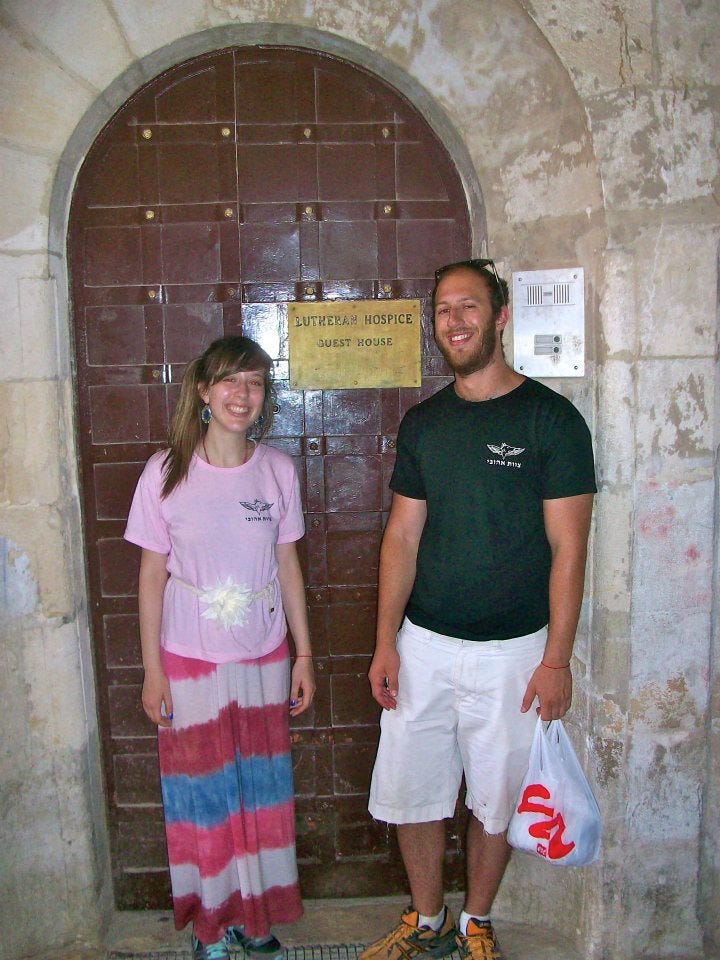
I can’t wait to see what meaningful, beautiful, woo-woo Jewish magic lies in store for me this year.
Last week, my colleague led a beautiful Rosh Hashanah teaching that included the following from Rabbi Sharon Cohen Aniseld’s Rosh Hashanah message this year to Hebrew College:
“… teshuva is not about the impossible fantasy of returning to what was. That fantasy is profoundly understandable, born as it so often is out of grief, but it is nostalgia—not teshuva.
Teshuva entails a different kind of return—arduous, uncertain, unpredictable, and alive. It is a return not to what was, but to what is and what might be. It is a return not to who we were, but to who we long to be. It is a return not to an irretrievable past, but to each other and to God. In this sense, the call to teshuva is a call to both belonging and becoming.”
Real teshuva is coming home to yourself. Instead of longing to return to the support and spirituality I felt in June, I can bring parts of that time into my life here, now: continuing to study Hebrew, praying, listening to Israeli music and watching Israeli shows (Shababnikim!!), cooking Israeli cuisine, going to marches in support of the hostages still in Gaza, and staying in touch with my friends from the trip. And when all else fails, I can listen to happy Hasidic music like my friend, and like that famous Hasidic Rebbe once recommended to me.
I can already feel my doors beginning to open, or maybe just slowly letting in some light. I hope the same happens for you, however you’re seeking it.
Shabbat Shalom. Sending love and light,
P.S. If you’d like to talk spirituality and how it connects to Jews as a people, sign up for virtual Jewish book club! We’ll discuss Sarah Hurwitz’s new book, As a Jew, on 10/26.


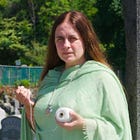
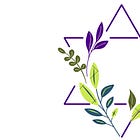
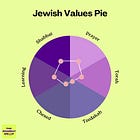
I loved reading this Miranda. I do believe that anyone who feels they are missing some spirituality (no matter their beliefs, religion) can relate in a spiritual way with you. Thanks for sharing this will all of us. Your friend who isn’t Jewish, Tricia
This is really spot on and well written - Miranda really captures the feeling upon return from volunteering in Israel and how we use that energy going forward. I had the opportunity to meet Miranda in June and we all shared the experience of sheltering during alerts.